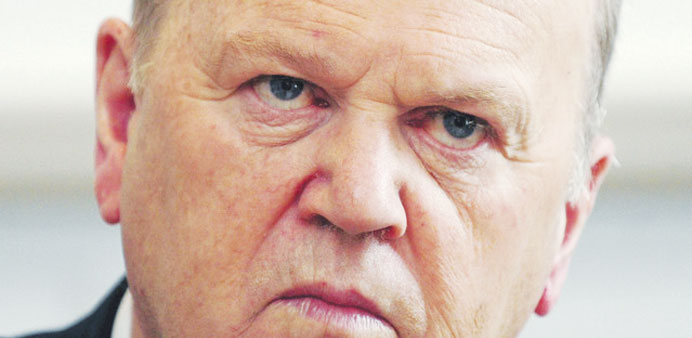Ireland will invest in its economy if it has the capacity to do so once targets under an EU/IMF bailout are hit, but voters should not expect it to embark on a spending spree, Finance Minister Michael Noonan said yesterday.
The comments come a day after European Commission President Jose Manuel Barroso said that austerity had reached its natural limits of popular support, a signal that Europe is contemplating some easing up on its cornerstone policy of sharp budget cuts.
A bank debt deal struck with the European Central Bank (ECB) earlier this year has already eased Ireland’s deficit path from next year and the government has promised voters they would see some upside through less severe austerity budgets.
While Noonan took a step back and said that it was too soon to say for sure what the leeway would mean for next year’s budget, he insisted yesterday that he would rather invest any spare funds than stash them away as a cushion against future shocks.
“We have laid out a programme for correction and we should stick to the programme and stick to the targets in the programme,” Noonan told reporters.
“Having done that, if there is spare cash around, we should use that money for investment purposes to grow the economy and get people back to work. We shouldn’t, just because we are making progress, go on some sort of spending spree.”
The leeway provided by February’s deal would see Ireland’s deficit fall — assuming Dublin stuck to its austerity plan and the economy grew as quickly as forecast — to 4.5% of gross domestic (GDP) next year, beating a target of 5.1%.
However, with the outlook for Ireland’s export-focused economy still shaky, the country’s central bank has urged the government to stick to its original plan to preserve market confidence and maintain a fiscal buffer.
On the other hand, Ireland’s public sector trade unions, who last week rejected a pay deal aimed at saving an additional 1bn euros over the next three years, have proposed that the savings be used to ease the burden on its members. Ireland has one of the highest unemployment rates in the European Union at 14% of its workforce.

